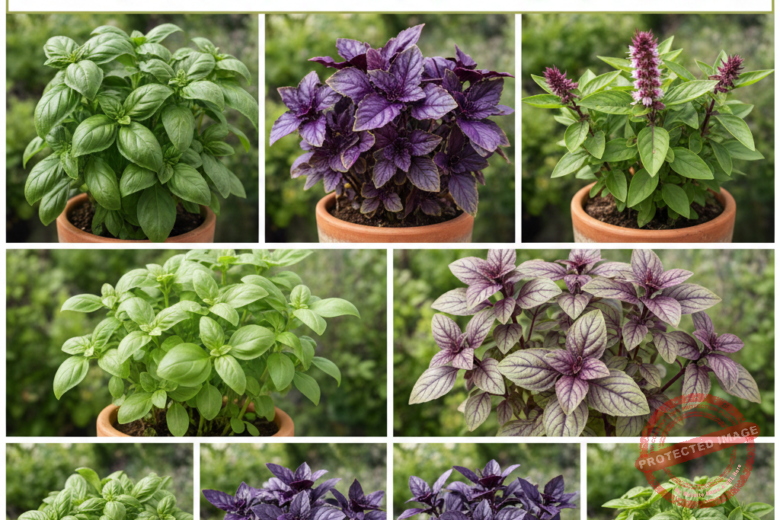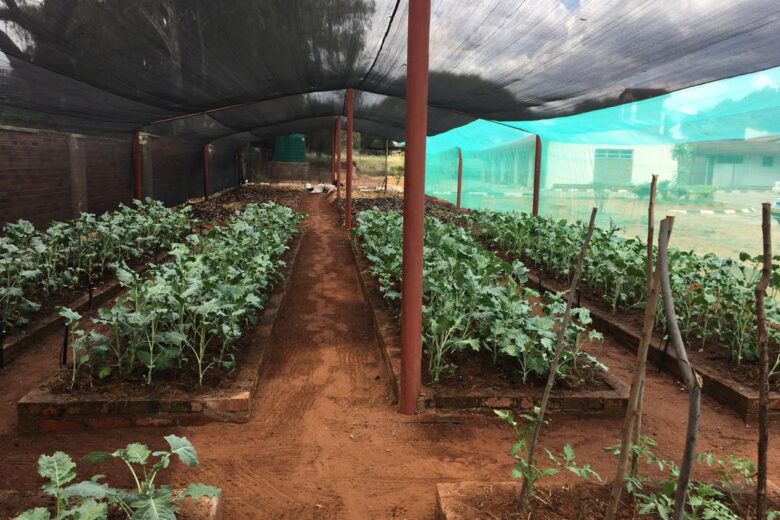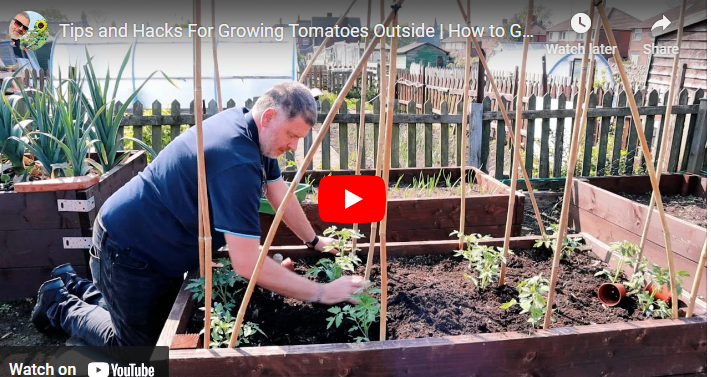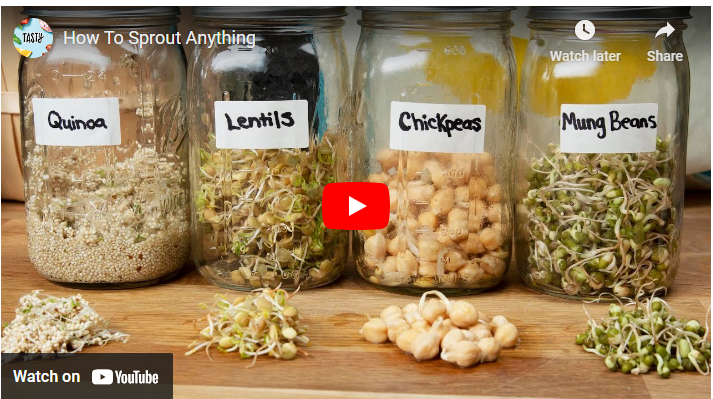Raspberries, known for their delicious taste and vibrant colors, are a favorite among gardeners. If you’re new to raspberry cultivation, you might be wondering, “How long does it take for raspberries to grow?” In this article, we will not only answer that question but also provide you with essential tips to ensure your raspberry plants thrive and bear fruit faster.
Raspberries typically take around two (2) years to grow and produce fruit. In the first year, they establish their roots and foliage. In the second year, they yield their first harvest of berries. With proper care and maintenance, raspberry plants can continue to produce fruit for several years.
Raspberry plants undergo several growth stages, including vegetative growth, flowering, fruiting, and dormancy. Understanding these stages helps you anticipate the time it takes for raspberries to fully mature.
Factors Affecting Raspberry Growth
Soil Quality and Preparation
The foundation of healthy raspberry plants lies in the soil. Choose well-draining soil rich in organic matter. Before planting, prepare the soil by adding compost and ensuring proper drainage to prevent waterlogging.
Read Also: 50 Fastest Growing Vegetables and Fruits [2-9 Weeks]
Sunlight and Location
Raspberries thrive in sunlight. Select a planting location that receives at least 6 hours of direct sunlight daily. Proper sunlight exposure is crucial for robust growth and abundant fruiting.
Watering and Irrigation
Consistent moisture is key to raspberry growth. Keep the soil evenly moist, especially during the flowering and fruiting stages. Avoid overwatering, as this can lead to root rot.
Pruning and Maintenance
Regular pruning helps maintain raspberry plant health. Remove dead canes and any diseased growth to encourage new shoots. This practice also improves air circulation, reducing the risk of diseases.
Read Also: [Beginner’s Guide] How To Grow Watermelon In Africa
Choosing the Right Raspberry Varieties
Different raspberry varieties have varying growth timelines. Some varieties produce fruit in their first year, while others might take up to two years. Research and choose varieties that are well-suited for your climate and preferences.
Read Also: [Beginners Guide] How To Grow Avocado At Home
Planting Raspberries: Step-by-Step Guide
Selecting Healthy Plants
When purchasing raspberry plants, opt for certified disease-free specimens from reputable nurseries. Healthy plants are more likely to establish strong growth.
Read Also: [Beginners Guide] How To Grow Avocado At Home
Preparing the Planting Area
Clear the planting area of weeds, rocks, and debris. Test the soil’s pH and amend it as needed to create an optimal growing environment.
Planting Depth and Spacing
Plant raspberry canes at the same depth they were in their nursery containers. Proper spacing is essential to allow for air circulation and prevent overcrowding.
Mulching for Moisture Retention
Apply a layer of organic mulch, such as straw or wood chips, around the base of the raspberry plants. Mulch helps retain soil moisture, regulate soil temperature, and suppress weed growth.
Read Also: [Beginners Guide] How to Grow Raspberries in Pots
Fertilization and Nutrient Requirements
Fertilize raspberry plants in early spring using a balanced, slow-release fertilizer. Follow recommended application rates to avoid over-fertilization, which can harm the plants.
Training and Supporting Raspberry Canes
As raspberry canes grow, train them to grow vertically. Use trellises, stakes, or a specialized raspberry support system to keep the canes upright and prevent them from sprawling.
Read Also: [Beginners Guide] How to Grow Raspberries in South Africa
Managing Pests and Diseases
Regularly inspect your raspberry plants for signs of pests and diseases. Use integrated pest management techniques, such as introducing beneficial insects or applying organic solutions, to address issues without resorting to harsh chemicals.
Understanding Raspberry Flowering and Fruiting
Raspberries typically flower in their second year of growth. After flowering, the plant’s energy is directed towards developing fruit.
Read Also: 15 Best Vegetable Garden Layout App [2023 Gardner’s Rating]
Timeframes for Raspberry Growth
On average, raspberry plants start producing fruit 1 to 2 years after planting. Some everbearing varieties might yield a small crop in the first year itself.
Tips to Accelerate Raspberry Growth
Soil Amendments for Better Drainage
Improve soil drainage by adding materials like coarse sand or perlite. Well-draining soil prevents waterlogged roots, which can stunt growth.
Optimal Sunlight Exposure
Position your raspberry patch in an area that receives full sun. Sunlight directly influences the plant’s ability to photosynthesize and produce energy.
Consistent Watering Schedule
Establish a consistent watering schedule to provide adequate moisture without overwatering. Water deeply at the base of the plants to encourage root growth.
Pruning for Air Circulation
Regularly prune raspberry canes to remove dead or overcrowded growth. Proper air circulation reduces the risk of fungal diseases and encourages healthy new shoots.
Read Also: [Beginners Guide] How to Start Growing Strawberries Anywhere in the World
Using Organic Fertilizers
Incorporate well-rotted compost or organic fertilizers into the soil. These natural sources of nutrients gradually release essential elements, promoting steady growth.
Applying Mulch to Conserve Moisture
Mulching helps retain soil moisture, minimizing water stress during hot periods. Additionally, mulch prevents weed growth, reducing competition for resources.
Providing Structural Support
Install trellises, stakes, or a raspberry-specific support system to prevent canes from bending under the weight of fruit or during inclement weather.
Monitoring and Addressing Pests
Regularly inspect your raspberry plants for signs of pests such as aphids, beetles, or mites. Introduce beneficial insects like ladybugs to control pest populations naturally.
Protecting from Harsh Weather
Shield raspberry plants from extreme weather conditions such as heavy rain, strong winds, or frost. Covering plants with a cloth or netting can help mitigate damage.
Encouraging Pollinators
Plant flowers that attract pollinators, such as bees and butterflies, near your raspberry patch. Pollinators aid in the fertilization process, leading to better fruit development.
Harvesting Ripe Raspberries
Raspberry berries are ready to harvest when they are fully colored and easily detach from the plant with a gentle tug. Handle the delicate fruit carefully to avoid damage.
What is the Best Month to Plant Raspberries?
Choosing the right time to plant raspberries significantly impacts their growth trajectory. The ideal period for planting raspberries is during the late fall or early spring. These seasons offer cooler temperatures and ample moisture, which aids in root establishment before the arrival of harsh weather conditions.
Late Fall Planting: Planting raspberries in late fall, after the growing season ends, allows the plants to focus on root development without the demand for immediate fruit production. This results in stronger and healthier plants when the next growing season arrives.
Early Spring Planting: If you miss the fall planting window, early spring is another suitable option. Planting in spring provides the advantage of an entire growing season ahead, which enables the plants to establish themselves before the challenges of winter.
Do You Get Raspberries the First Year?
The timeline for raspberry fruiting varies based on the type of raspberries you’re cultivating. There are two primary categories:
June-Bearing Raspberries: These raspberries produce fruit on second-year canes. This means that if you plant June-bearing raspberries, you may not get a harvest in the first year. However, in the second year, you can expect a bountiful harvest from these canes.
Everbearing Raspberries: Everbearing raspberries have a unique growth pattern. They produce a small crop on first-year canes in the late summer or early fall and a larger harvest on second-year canes the following year. This characteristic allows you to enjoy some raspberries in the first year itself.
Do Raspberries Come Back Year After Year?
Yes, raspberries are perennial plants, which means they come back year after year if properly cared for. Raspberries have a biennial growth cycle, where they produce fruit on second-year canes. After the fruiting season, the second-year canes will die, and new canes will emerge from the ground. These new canes will grow and develop throughout the first year, and in the second year, they will bear fruit. This cycle repeats annually, provided the plants are well-maintained.
To ensure raspberries continue coming back year after year, it’s important to practice proper pruning, fertilization, and disease management. By removing dead canes and providing adequate care, you can encourage the growth of new canes and a consistent harvest.
How Long After Flowering Do Raspberries Grow?
After the flowering stage, raspberries enter the fruiting phase. The time it takes for raspberries to grow after flowering depends on several factors, including the raspberry variety and environmental conditions.
On average, raspberries begin to develop fruit a few weeks after flowering. This period can range from 3 to 4 weeks, although some varieties might take slightly longer. During this time, the small green fruits gradually grow in size and start to change color as they ripen.
It’s important to monitor the development of the berries closely, as they can quickly transition from unripe to overripe. Raspberries are ready to be harvested when they are fully colored, easily detach from the plant with a gentle tug, and have a plump appearance.
Can I plant raspberries in the summer?
While it’s possible to plant raspberries in summer, it’s not the ideal time due to the stress of hot temperatures. Fall and spring are better options for successful establishment.
Do raspberry plants need to be replaced after a few years?
Raspberry plants can continue producing for several years with proper care. However, after 10-12 years, the productivity might decline, and rejuvenating the patch by replanting can be beneficial.
Can I grow raspberries in containers on a balcony?
Yes, you can grow raspberries in containers on a balcony, but ensure they receive adequate sunlight and care, as the limited space might require extra attention.
Can I plant different raspberry varieties together?
Yes, you can plant different varieties together, but ensure they have similar care requirements and spacing to avoid competition and overcrowding.
What should I do with raspberry plants during the winter?
Apply a layer of mulch around the base of the plants to protect the roots from cold temperatures. Prune dead canes and provide structural support if needed.
Can I grow raspberries in containers?
Yes, raspberries can be grown in large containers, provided they receive sufficient sunlight and proper care.
How do I protect my raspberry plants from birds?
Use bird netting to cover raspberry bushes during fruiting to prevent birds from consuming the ripe berries.
Can I propagate raspberries from cuttings?
Yes, you can propagate raspberries from stem cuttings. Follow proper procedures for successful rooting.
Do raspberries require winter protection?
Yes, in cold climates, raspberry plants benefit from winter protection, such as mulching around the base and tying canes together.
What can I do with excess raspberry harvest?
You can enjoy fresh raspberries, make jams, jellies, desserts, or freeze them for later use in smoothies and recipes.
Conclusion
The journey of growing raspberries is a fulfilling one, and armed with the right knowledge and care, you can enjoy the fruits of your labor sooner than you might think. By understanding the growth stages, optimizing environmental factors, and implementing proper care practices, you’ll be on your way to a successful raspberry harvest.




One Reply to “How Long Does It Take for Raspberries to Grow? [10 Tips To Grow Faster]”